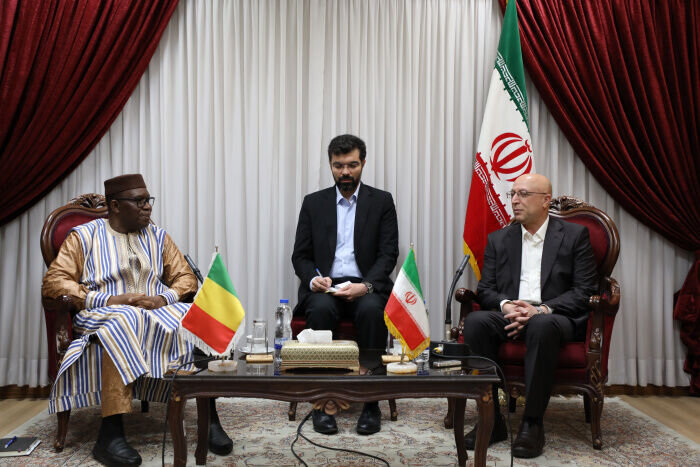Iran ready to provide scientific, research experiences to Mali

TEHRAN – Iran’s Minister of Science, Research, and Technology Mohammad-Ali Zolfigol in a meeting with his Malian counterpart Amadou Keita announced readiness to provide research and scientific experiences to the African country.
Keita, heading a delegation of five representatives, visits Iran to develop mutual cooperation.
“We are aware of Iran’s scientific abilities and capacities, and based on this, scientific cooperation with Iran is important for us,” Keita stated.
He further expressed hope to use Iran's experiences in all scientific fields, including the creation of universities and technology centers.
“We are ready to help Mali in establishing universities, science and technology parks, and accelerators.”Iran's scientific and technological achievements are at a high level, and Mali has started investing in science and technology. So, familiarity with the process of acquiring these scientific achievements is very important, he highlighted.
He also requested granting 20 scholarships to Malian students to attend Iranian universities.
Zolfigol also for his part said that the strengthening of science diplomacy as a complement to public diplomacy is important to us, and it is planned to increase scientific and research cooperation with other countries, especially interaction with countries that seek independence.
Iran has one percent of the world's population, but it owns more than 2 percent of the world's scientific productions and is ranked the world’s top in many scientific fields such as nuclear science, defense industry, nanotechnology, biotechnology, chemistry, as well as achieving great progress in medicine and health, he explained.
“We are ready to help Mali in establishing universities, science and technology parks, and accelerators,” he noted.
Science diplomacy at highest level
Data from the Scopus International Citation Database show that Iran’s scientific diplomacy has reached more than 34 percent since the beginning of 2021, the highest level in the past 20 years.
Science diplomacy is the use of scientific collaborations among nations to address common problems and build constructive international partnerships. It is a form of new diplomacy and has become an umbrella term to describe a number of formal or informal technical, research-based, academic, or engineering exchanges, within the general field of international relations.
Comparing the rate of 2020 with 2019, Iran with a growth of 12.5 percent and with a slight difference from India has gained second place in the world in terms of the growth of world science diplomacy, Mohammad Javad Dehghani, head of the Islamic World Science Citation Center (ISC), said.
In 2011, the share of Iranian articles with international participation was about 16.5 percent, which increased to 19.7 percent in 2016 and gradually in the following years, so that in 2020 and 2021, reached 30.5 and 34.2 percent, respectively, he added.
The share of Iranian articles with international participation has had significant growth of 209 percent during an eight-year period (2013-2020), becoming the Islamic world’s leading country in science diplomacy, according to the Scopus International Citation Database.
FB/MG
Leave a Comment